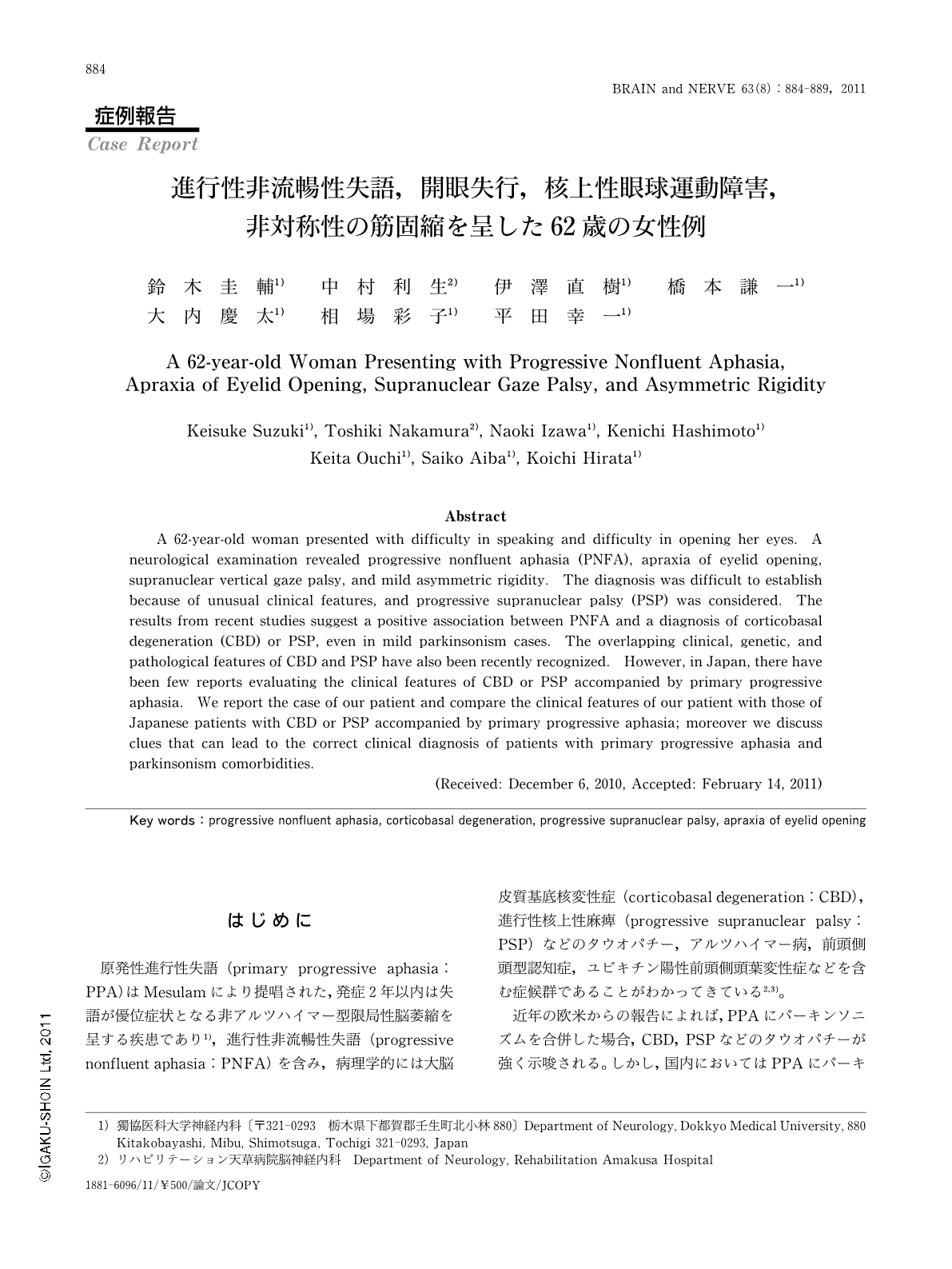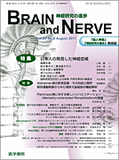Japanese
English
- 有料閲覧
- Abstract 文献概要
- 1ページ目 Look Inside
- 参考文献 Reference
はじめに
原発性進行性失語(primary progressive aphasia:PPA)はMesulamにより提唱された,発症2年以内は失語が優位症状となる非アルツハイマー型限局性脳萎縮を呈する疾患であり1),進行性非流暢性失語(progressive nonfluent aphasia:PNFA)を含み,病理学的には大脳皮質基底核変性症(corticobasal degeneration:CBD),進行性核上性麻痺(progressive supranuclear palsy:PSP)などのタウオパチー,アルツハイマー病,前頭側頭型認知症,ユビキチン陽性前頭側頭葉変性症などを含む症候群であることがわかってきている2,3)。
近年の欧米からの報告によれば,PPAにパーキンソニズムを合併した場合,CBD,PSPなどのタウオパチーが強く示唆される。しかし,国内においてはPPAにパーキンソニズムを合併した症例の報告は少数にとどまり,臨床・病理的症例の蓄積が必要である。われわれは,PNFAを初発症状とし,開眼失行,核上性眼球運動障害,非対称性の筋固縮を呈した症例について,文献的考察を加え,臨床的に検討した。
Abstract
A 62-year-old woman presented with difficulty in speaking and difficulty in opening her eyes. A neurological examination revealed progressive nonfluent aphasia (PNFA), apraxia of eyelid opening, supranuclear vertical gaze palsy, and mild asymmetric rigidity. The diagnosis was difficult to establish because of unusual clinical features, and progressive supranuclear palsy (PSP) was considered. The results from recent studies suggest a positive association between PNFA and a diagnosis of corticobasal degeneration (CBD) or PSP, even in mild parkinsonism cases. The overlapping clinical, genetic, and pathological features of CBD and PSP have also been recently recognized. However, in Japan, there have been few reports evaluating the clinical features of CBD or PSP accompanied by primary progressive aphasia. We report the case of our patient and compare the clinical features of our patient with those of Japanese patients with CBD or PSP accompanied by primary progressive aphasia; moreover we discuss clues that can lead to the correct clinical diagnosis of patients with primary progressive aphasia and parkinsonism comorbidities.
(Received: December 6,2010,Accepted: February 14,2011)

Copyright © 2011, Igaku-Shoin Ltd. All rights reserved.


